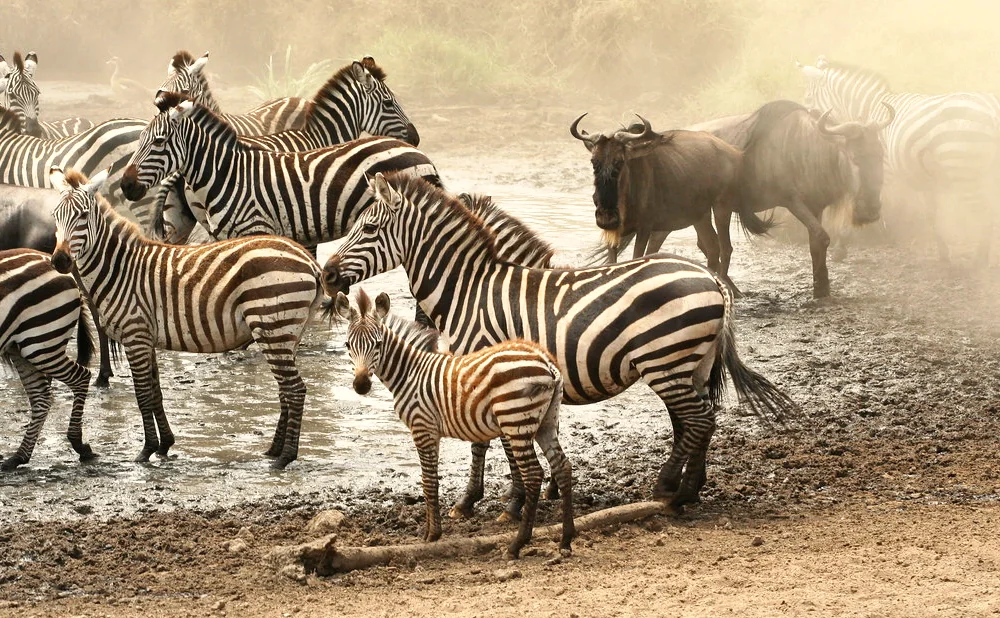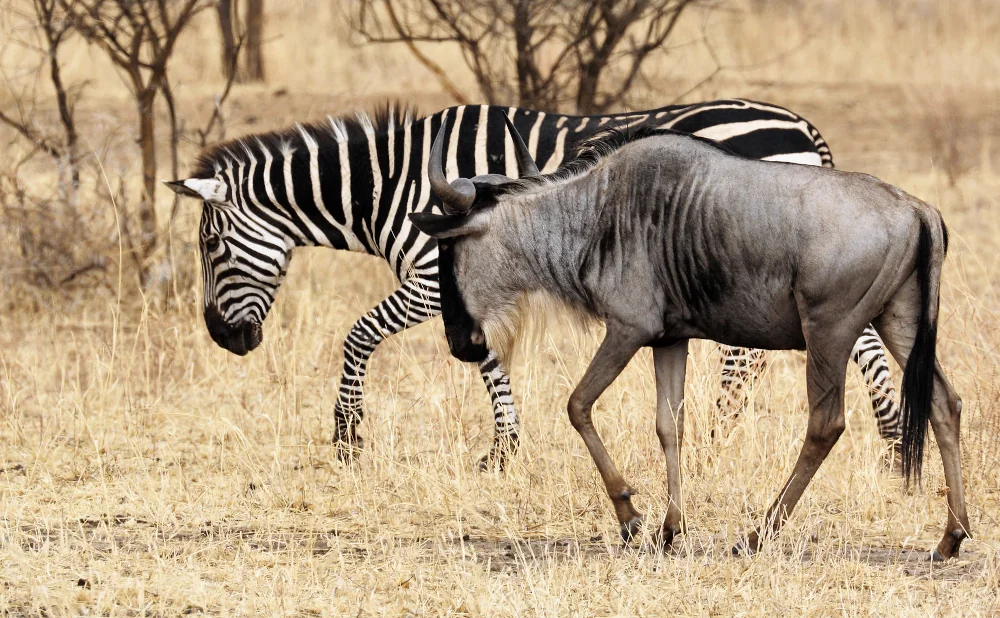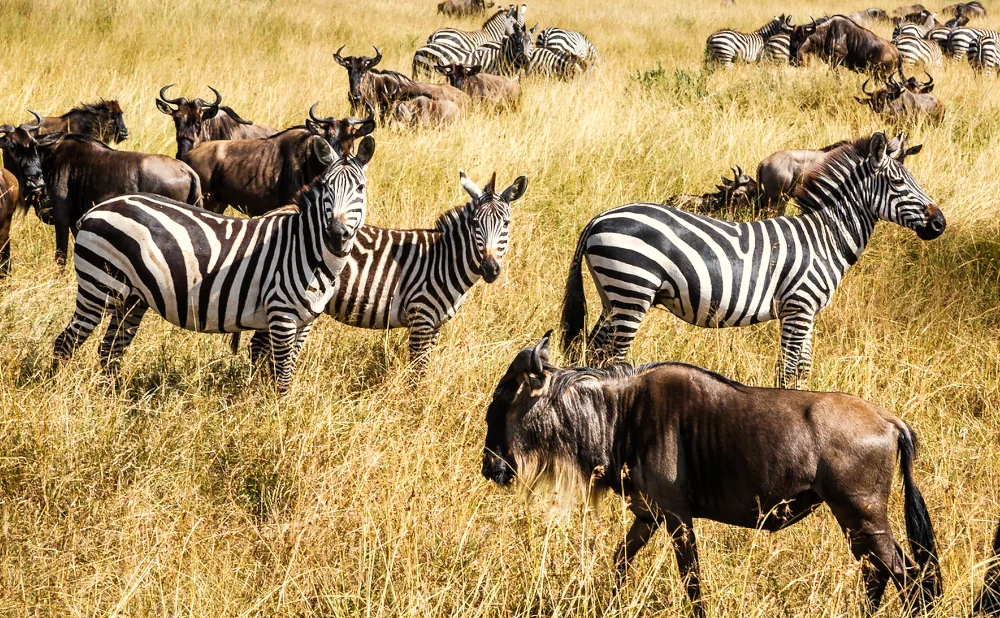why dont lions attack humans
Lions, often referred to as the "King of the Jungle," are majestic creatures known for their strength and power. Yet, despite their fearsome reputation, lions rarely attack humans. This article will explore the reasons behind this phenomenon, delving into the intricate relationship between lions and humans.
Understanding Lion Behavior
To comprehend why lions don't frequently attack humans, it's essential to understand their natural behavior. Lions are social animals, living in groups known as prides. Their primary focus is on hunting prey that can sustain the group, such as antelopes, zebras, and wildebeests.
Natural Prey and Hunting Patterns
Lions are apex predators, meaning they are at the top of the food chain. Their hunting strategy involves teamwork, stealth, and power. Lions typically hunt at night or during the cooler hours of the day, using the cover of darkness or the landscape to stalk their prey.
Humans do not fit the typical profile of a lion's prey. Our bipedal stance, lack of fur, and relatively small size compared to the usual prey animals make us an unlikely target. Lions rely on a diet that provides the necessary nutrients and energy, and hunting humans does not fulfill these needs.
Fear and Curiosity
Lions, like many wild animals, are naturally cautious creatures. They are curious but tend to avoid unfamiliar situations that could pose a threat. When encountering humans, lions often exhibit a behavior known as "fear avoidance." This means they are more likely to flee than to engage in an attack.
In areas where lions and humans coexist, such as certain parts of Africa, lions have learned to associate humans with potential danger. This association might stem from experiences with hunters or from their natural instinct to avoid unknown threats.
Historical Interactions Between Lions and Humans
Throughout history, humans and lions have had a complex relationship. In some cultures, lions are revered and respected, while in others, they are hunted and feared. Understanding this historical context helps explain the current dynamics between these two species.
Ancient Symbolism and Respect
In ancient times, lions were symbols of strength, courage, and nobility. Civilizations such as the Egyptians and Greeks held lions in high regard, often depicting them in art and mythology. This respect led to a cautious coexistence, where humans and lions avoided unnecessary conflict.
The Impact of Human Expansion
As human populations expanded, their territories increasingly overlapped with those of lions. This led to more frequent encounters, some of which resulted in conflict. However, humans have generally been seen as a threat by lions, leading them to avoid contact whenever possible.
The Role of Conservation and Education
Today, conservation efforts and education play a significant role in maintaining the delicate balance between lions and humans. By understanding and respecting lion behavior, humans can coexist peacefully with these majestic animals.
Conservation Efforts
Conservation organizations work tirelessly to protect lion habitats and ensure their survival. By preserving natural ecosystems, these groups help maintain the balance of predator and prey, reducing the likelihood of lions seeking alternative food sources, such as humans.
Education and Awareness
Educating local communities about lion behavior and the importance of conservation can lead to a more harmonious relationship. By promoting awareness, people are more likely to understand the reasons behind lion behavior and take measures to prevent conflicts.
Rare Cases of Lion Attacks
While lions generally avoid humans, there are rare instances where they might attack. Understanding these exceptions can provide further insight into the lion's behavior.
Provoked Attacks
Lions are more likely to attack when they feel threatened or cornered. Provoked attacks often occur when humans unknowingly venture too close to a pride's territory or when a lion perceives a direct threat to itself or its cubs.
Man-Eaters
In extremely rare cases, some lions have been known to become "man-eaters," actively hunting humans. This behavior is typically a result of injury or illness, which impairs the lion's ability to hunt its usual prey. In such cases, humans become an easier target.
How Humans Can Stay Safe Around Lions
While lion attacks on humans are rare, it's essential to take precautions when in lion territory. Understanding and respecting lion behavior is crucial for safety.
Respect Their Space
Avoid approaching lions or their habitats too closely. Keeping a safe distance reduces the likelihood of provoking an aggressive response.
Travel in Groups
When in areas known for lion activity, it's safer to travel in groups. Lions are less likely to attack multiple people, as they perceive them as a more significant threat.
Stay Informed
Before venturing into lion territory, educate yourself about the local lion population and any recent incidents. This knowledge can help you take appropriate precautions.
Conclusion
The relationship between lions and humans is one of mutual respect and cautious avoidance. While lions possess the power to harm humans, they generally choose not to, preferring to focus on their natural prey. By understanding lion behavior and taking appropriate precautions, humans can continue to coexist peacefully with these magnificent creatures.
Through conservation efforts and education, we can preserve the delicate balance between lions and humans, ensuring a future where both species thrive.











